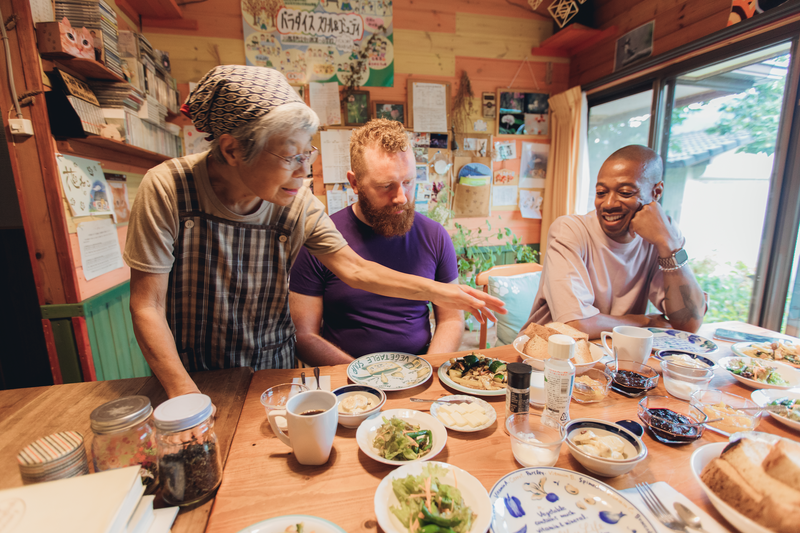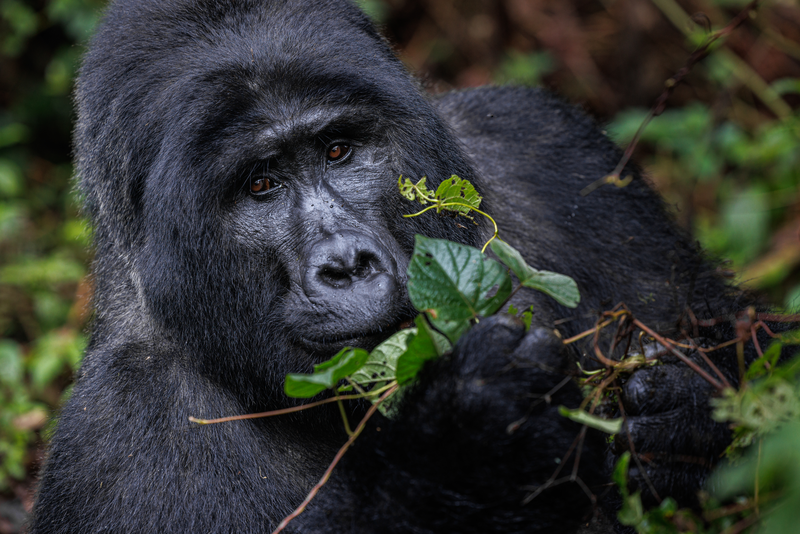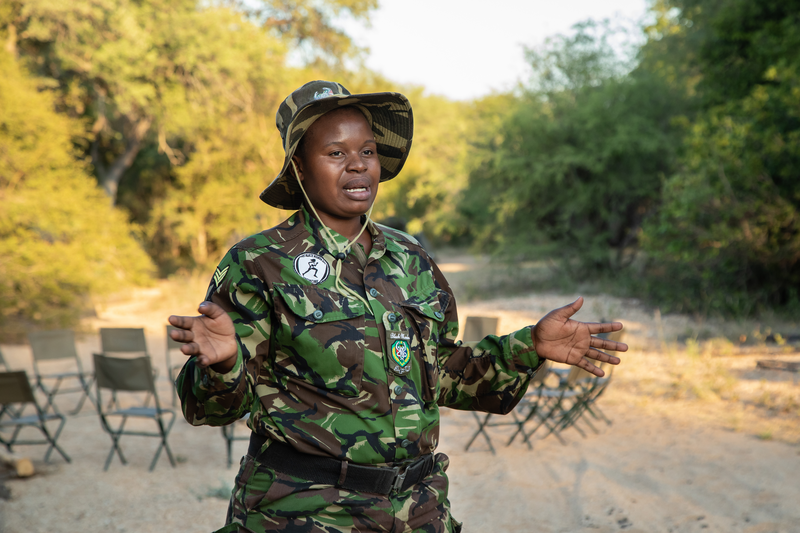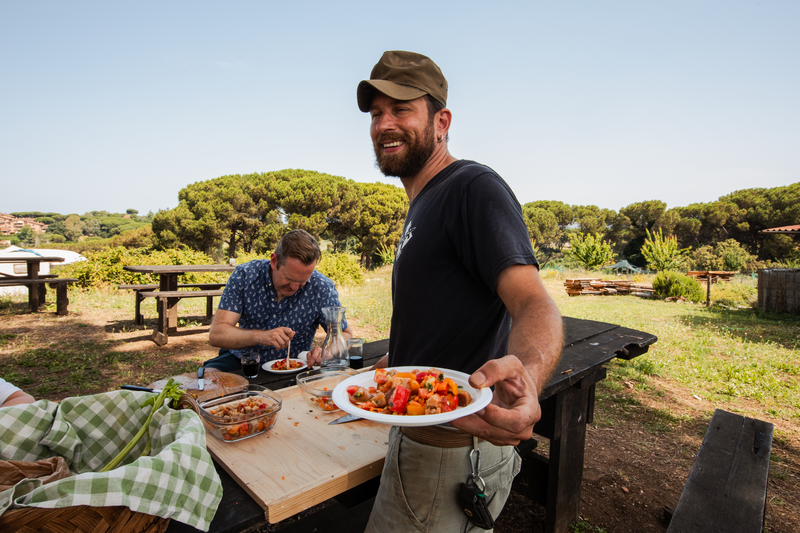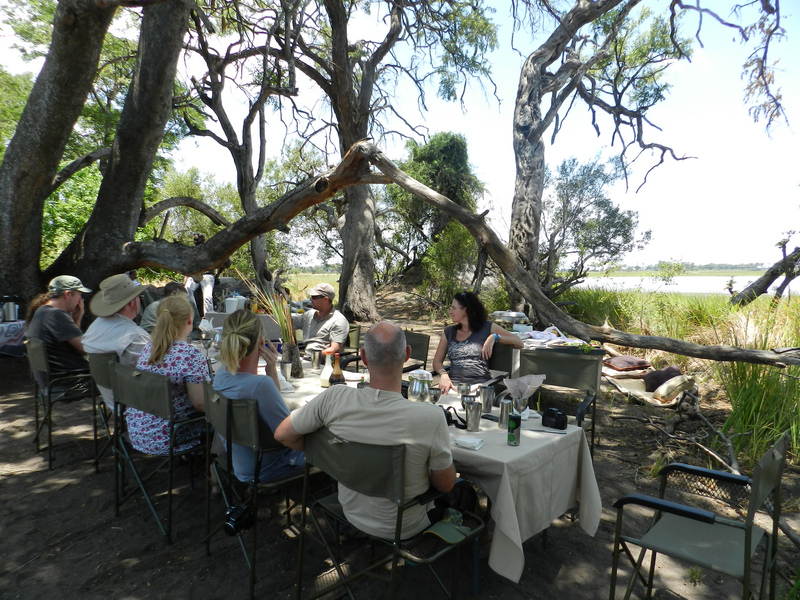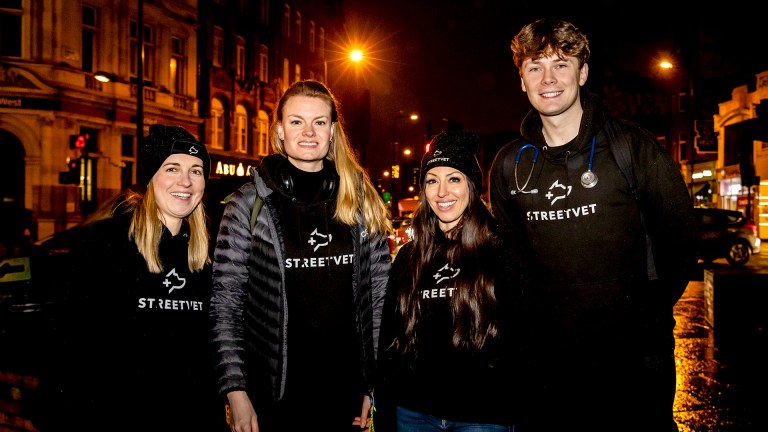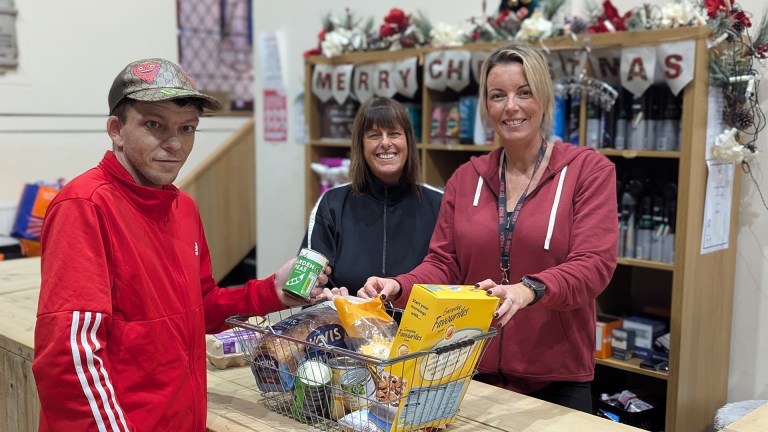It’s a rare gift for travellers visiting another country to see and experience first-hand how local communities live. Eyes are opened, new bonds created and memories made that can last a lifetime. Facilitating those kinds of exchanges is vitally important for Intrepid Travel. When Sounsrors Hor, known as Srors, welcomes travellers on Intrepid trips to the not-for-profit organisation Rokhak in Siem Reap, Cambodia, she knows they’ll leave with a deeper understanding of not just the skills of local women but how they are using them to build a brighter future for their families. Based near Tonlé Sap, a lake in north Cambodia, the project works on many levels.
The water is covered in the thick green leaves of water hyacinth, an invasive weed that stops sunlight getting into the water, depriving fish of oxygen. Local women have found a way to clear the water of the virulent pest, helping the ecosystem thrive, while providing employment. Srors runs Rokhak, training women to collect the plant stems, dry them and put them to a new use as the material for handwoven baskets, bags and rugs. “We show visitors how to weave the water hyacinth to make a basket. They have a real connection with our weavers and at the same time learn to appreciate the value of a handmade product,” explains Srors. “Importantly, they’re also learning about the impact weaving the water hyacinth has on the women in the community.
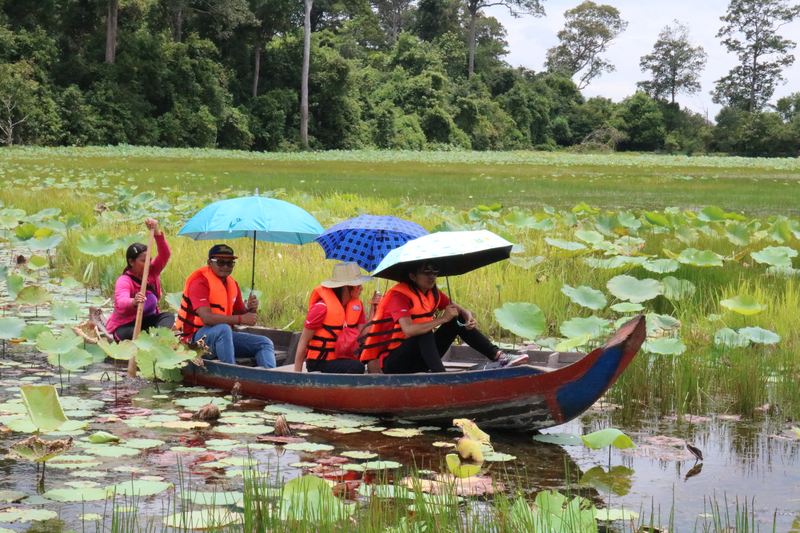
In the past, these women stayed at home, took care of the children and cleaned the house. But money is power and now they are more independent. Young women get married at 16 or 17 and if they’re a housewife they don’t learn any skills. They might get divorced or split up from their husband, then they have nothing and no skills to earn money. We’re giving them a skill, which gives them the money to look after their children. It’s life changing.” She adds: “I want to encourage tourists to find out more about local culture and the social impact of their trip. With their support, we will keep developing. By introducing travellers to projects like Rokhak, Intrepid is a role model for other travel companies.”
Intrepid’s small group adventures bring together like-minded people with a locally based leader. The simplest of experiences can leave a lasting mark on travellers. It’s a rare opportunity to take time to slow down and be more mindful of our surroundings and the people in it. Spending time with the Huilloc community in Peru does just that. Living 3,600 metres above sea level in the Andes, the Huilloc community members are farmers and weavers. Now 15 families, mainly women, work with Intrepid to show visitors their lives. “I teach visitors a few words in Quechua, the Incan language,” says Intrepid leader Alejandrina Vega. “The local people love this. They are impressed that visitors can say a few words in their language. Then I interpret as the conversation starts. The local people will sometimes ask questions. If one of the travellers is a single 30-year-old, they’ll ask, why are you not married, why don’t you have children and who is going to look after you when you are old?” Villagers give a weaving demonstration and then visitors can have a go themselves, to make a bracelet. Everyone has the chance to bond over lunch – pachamanca – cooked in the traditional style in an underground oven. “The travellers help to dig up the buried meat and vegetables, all grown locally, once it is cooked,” says Alejandrina. “I feel so privileged to be this link between travellers and my people and culture. I have a chance to make my cultural identity stronger than before and also to help my people. That’s very important for me.”
At Aït Benhaddou in the Ouarzazate region of Morocco, We Speak Citizen, an NGO, gave training and funding to a group of women to set up a restaurant, Tawesna. Within six months they made enough money to extend the kitchen, and five years later they rebuilt with a much bigger restaurant. Intrepid travellers stop at the restaurant to eat tafarnout bread, baked in a wood oven, and delicious tagines. They can then spend the day learning how to cook traditional Amazigh dishes. “The restaurant is run by the woman of the village who were previously excluded from all the local economic work. After they opened Tawesna, no man is there to tell them what to do,” says Loubna Mouna, executive director of We Speak Citizen. “Tawesna is not only a place where local women provide food, it’s a place where they are totally free. Visitors love sitting with the women and speaking to them. In the past the women could only speak Amazigh, but now they have some words in English and French. Visitors want to learn more about how they live. Sometimes they become friends and stay in touch after they go home.”
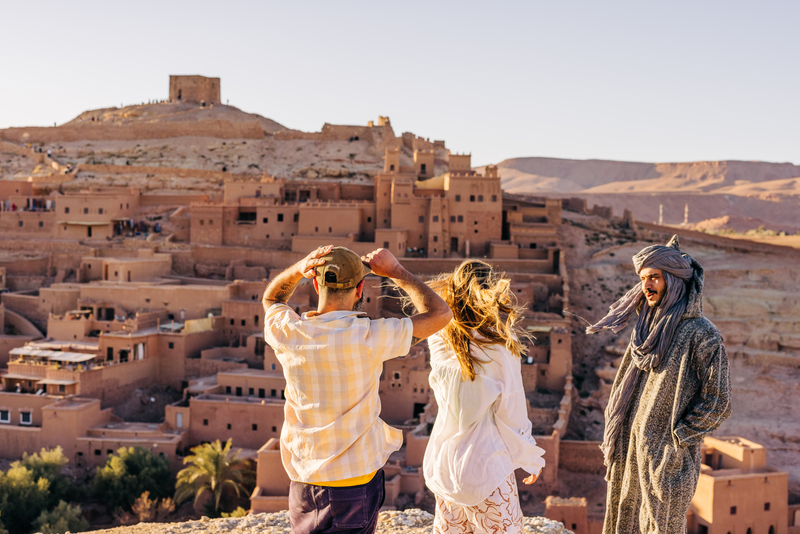
Travel trends
Protests about over tourism in some parts of the world are the big talking point. Intrepid is asking travellers to minimise overtourism, for example, travelling out of peak times and looking for lesser-known destinations, such as swapping the Italian Riviera for the Albanian Riviera.


